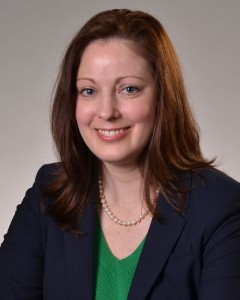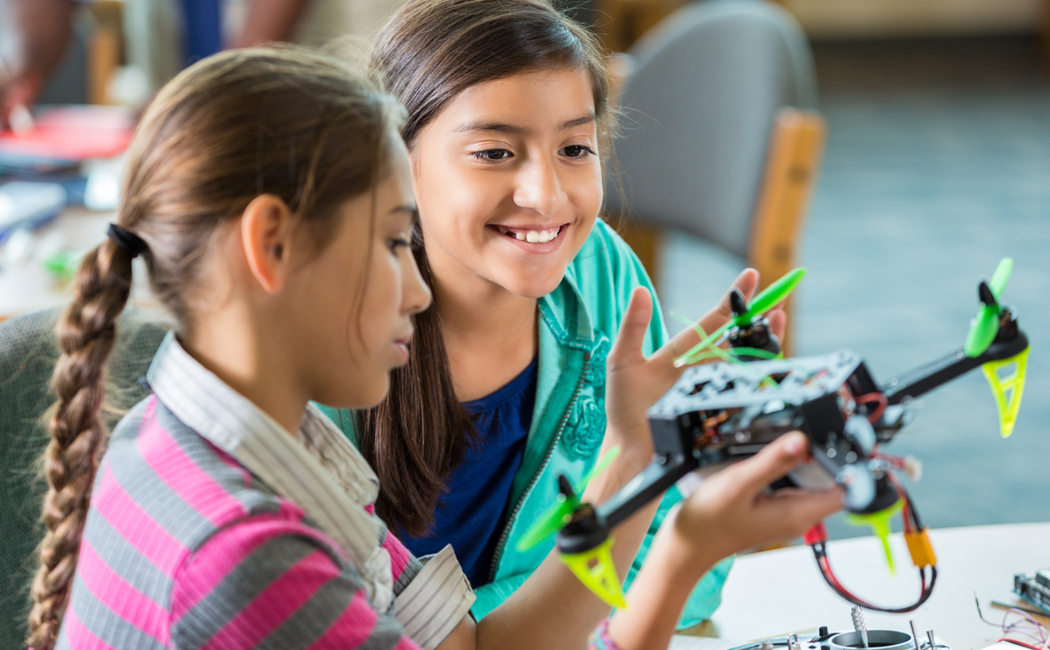Teacher. Firefighter. Doctor. Astronaut. Many of these careers land on children’s lists of what they want to be when they grow up. CYFS research assistant professor Lorey Wheeler would like to see another profession added: engineer.
With a $1 million grant from the National Science Foundation, Wheeler is joining a team from Arizona State University to study how children’s knowledge, stereotypes and achievement-related beliefs affect their interest in engineering. It’s a field in which job growth is outpacing the number of adults who pursue related degrees, especially among women and ethnic minority students.

Because engineering is rarely taught to elementary school students, questions about how students develop an interest and understanding of engineering—and how that relates to gender and ethnicity—remain unclear, Wheeler said.
“We’re trying to engage children when they’re young and developing ideas about who they might be in the future,” said Wheeler, who is a co-principal investigator on the grant. “This project is a starting place to address occupational and educational disparities. It is important to study students’ knowledge and beliefs in early elementary school to create developmentally appropriate interventions.”
The team aims to do both, starting with a survey of K-5 elementary school students and finishing with a pilot program to encourage a growth mindset.
The survey of 1,200 Latino and Caucasian students will ask about children’s engineering knowledge, stereotypes and achievement-related beliefs—which the team will then analyze to uncover potential age, gender and ethnic differences. Parents and teachers will also submit surveys about their own achievement-related beliefs, allowing researchers to study their influence on students.
Following the surveys, the team is launching a growth-mindset pilot program and comparing it to a control group. Students in the growth-mindset program will receive feedback that promotes effort over innate ability. That feedback may sound like “You worked really hard and are showing that you can do it,” rather than “You’re so smart.”
We know that the messages we tell kids from an early age can shape their trajectory.
Lorey Wheeler, CYFS research assistant professor
The project’s immediate goals include concrete suggestions for teachers and parents, such as effective techniques to reduce stereotypes that may hinder children’s interest in engineering.
Beyond engineering, Wheeler and the team view the growth-mindset program as a promising strategy for science, technology and mathematics fields. It is cost-effective, time-efficient and could integrate into other outreach interventions, Wheeler said.
“We know that the messages we tell kids from an early age can shape their trajectory,” said Wheeler. “Our project is trying to understand those paths, how kids learn about engineering and how messaging can change how they think about possibly doing that for a career.”
Wheeler, who co-directs the Nebraska Academy for Methodology, Analytics and Psychometrics, is providing expertise on the project’s study design, sampling and evaluation—including surveys and the growth-mindset program.
The project’s team includes Cindy Miller, principal investigator and research assistant professor of social and family dynamics at Arizona State University; and Martin Riesling, co-principal investigator and professor of electrical, computer, and energy engineering at Arizona State University.
